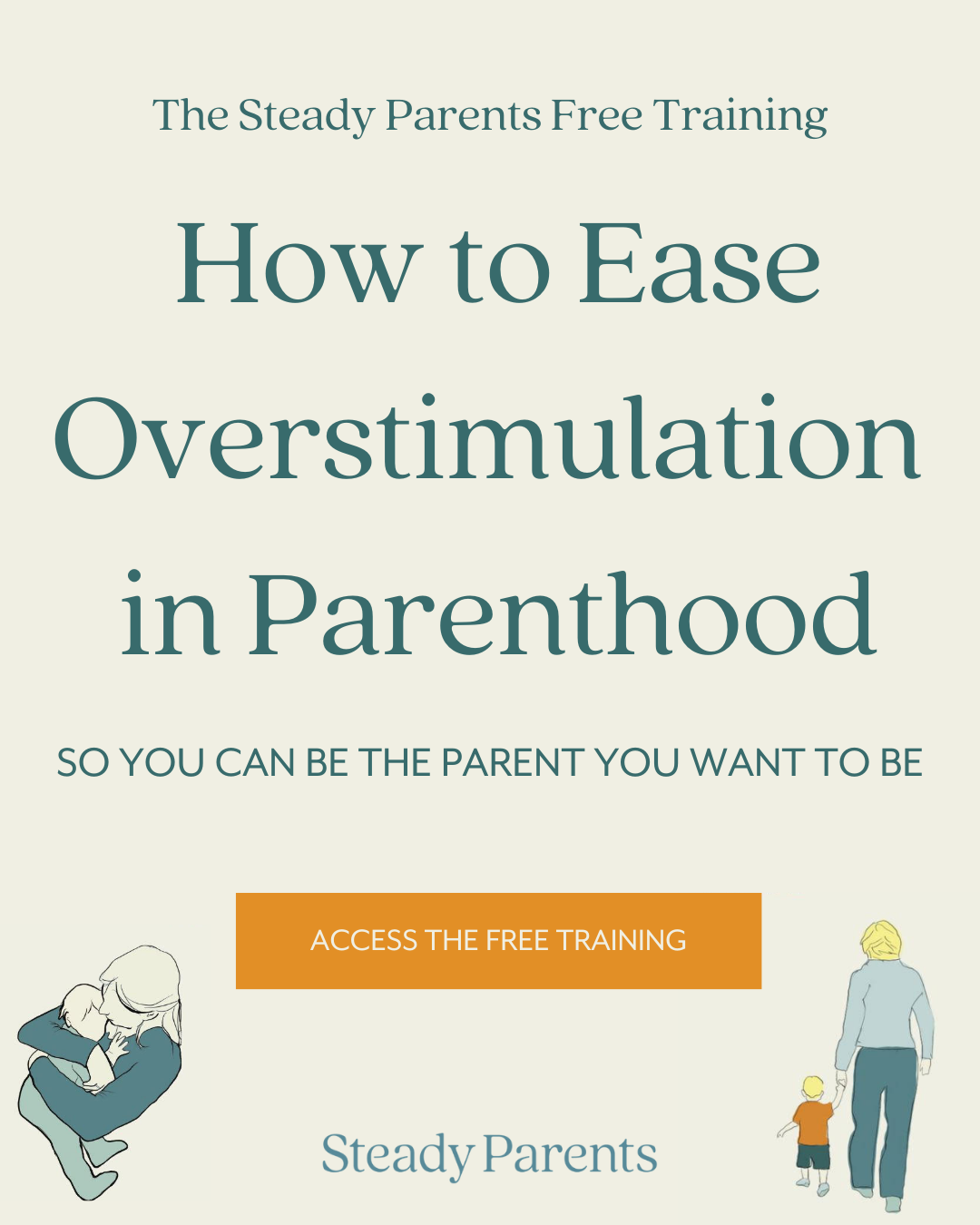The Mental Load of Motherhood and Overstimulation - How Are They Related?
Want to know a huge trigger for overstimulated moms? It’s something you can’t necessarily see or measure. In fact, others looking in may not even realize it exists.
It’s the mental load of motherhood.
What is the mental load?
Let’s take a moment to really think about what this term means. Mental load, also known as cognitive load, (Daminger) refers to the invisible load and energy that goes into managing a family and household.
The mental load can be broken into four categories, according to Daminger. They are: anticipate, identify, decide, and monitor. Let’s use back to school time as an example.
“We all have the power to reduce our mental load and be kind to ourselves. ”
Anticipate
As you get ready to send your children back to school after a summer break, there are a lot of things that need to be prepared and planned for ahead of time.
Realizing you need to make childcare plans for after school and days when school is closed.
Thinking about the school supplies our children need and where and when we should get them.
Remembering there is a new bus schedule so you’ll have to leave the house five minutes earlier than last year
Identify
This step usually requires some amount of research to be done by one or both parents.
Looking up options for after school childcare and activities. Do you pick a nanny, a daycare, a neighbor, or change your work schedule to accommodate?
Researching which stores are having back to school shopping sales.
Finding the email from the school with the new bus schedule.
Decide
Have you ever heard the term “decision-fatigue?” This step is what can cause the most frustration and overwhelm among parents. Not only do you have to research all of the options but you also have to decide what is “best” even if there is no clear cut answer.
Choosing to go with the daycare down the street as it is the most affordable and convenient option.
Planning to go to Target next Thursday for back-to-school shopping because you know clothes and school supplies will be on sale.
Deciding mom will have to take the kids to the bus stop because dad will have already left for work by the scheduled pick-up time.
Monitor
Now that you have made the decisions on afterschool care, back to school shopping, and who will take the kids to the bus stop in the morning, you have to actually see it through. Maybe there is someone you can delegate this task to, but often the worry that it will get done is still there for many moms.
Do the kids like their new daycare? Are they able to get a snack and their homework done there?
Did you get all of the supplies from the list? Is there anything you missed?
Did you set your alarm so you have time to get ready for the day before taking the kids to the bus stop?
This is just one example of how one trigger (back to school time) can lead to an overwhelming amount of thoughts and decisions. The cognitive load many mother’s carry on an ongoing basis can lead to overstimulation and poor mental health if it becomes too much, they don’t get a break, or they don’t feel supported.
More Mental Load Examples
A parent’s work is truly never done. Other examples of cognitive load in parenting can include:
managing your family’s schedules and routines
planning/shopping for/cooking/cleaning up meals
knowing where things are in the home
remembering appointments
researching developmental milestones and being on alert for them
holding concerns about your child’s needs and trying to support them
cleaning your home and doing laundry
and SO much more!
This is just the tip of the iceberg when it comes to the cognitive load that parents hold. It’s no wonder that you constantly feel like you don’t get a break.
You have to hold all of this in your head and anticipate or plan the next move. So it is likely that you are in a constant ramped up state.
The Mental Load and Executive Functions
The mental load is full of executive functions. Executive functions are the mental abilities that help guide your behavior, such as organization and regulation.
This involves time management, working memory (holding something in your mind), sustained attention, shifting attention, problem solving, self-regulation, and self-control. All of these are skills that make parenting and running a household much, much easier.
But, when your to-do list is endless, your sympathetic nervous system ramps up. Although this is its job (it helps you get the tasks done!), when you’re in a ramped up state, the skilled process of tuning in/tuning out to sensory input becomes much more challenging.
It’s a vicious cycle, because when you’re in this ramped up state, the sensory input triggers you more, making it harder to focus on your to-do list. This sensory overload can lead to you feeling touched-out, on edge, and exhausted.
For more on the relationship between executive functions and overstimulation, be sure to check out my blog post: ADHD and Overstimulation - Symptoms and How to Manage.
How a Mother’s Load Can Lead to Overstimulation
This mental load is heavy in executive functioning demands. It’s also mundane, repetitive, and lacking immediate rewards.
But at the same time, you are bombarded with unpredictable sensory input from your children. So not only are you not getting the type of stimulation that your brain needs to stay regulated, you’re also getting too much stimulation.
You likely shift quickly from under-aroused to over-aroused, and back, but don’t spend as much time centered within your band of optimal arousal.
And as a parent, you might hold this internal expectation that you’ll do it calmly and carefully. But your brain literally can’t do that. So then guilt and shame might creep in, and you might begin to feel like a failure.
But understanding your brain, how it works, and what it needs, can be so freeing. You have the power to change so many things, including your internal expectations for yourself. You can be kind to yourself by either letting go of, or adapting, some tasks. How do you do it?
Reduce a demand. Any demand. Here are some suggestions:
Skip bath time
Leave the laundry in its basket until later
Change into comfortable clothes
Make something from the freezer or order take out for dinner
Put phone on do not disturb
Pick up just the trash instead of cleaning an entire room
Use paper plates one night for dinner
And then remind yourself WHY you’re reducing that demand. An example of this might be, “I’m using paper plates to be kind to myself. I can let this go.”
Adjusting your expectations, and looking for ways you can reduce your to-do list, can be a game-changer in your parenting journey.
For more ideas for reducing the mental load, be sure to check out the podcasts I have been featured in on my resources page.
“Reduce a demand. Any demand.”
Being Mindful of Our Mental Load
As moms, we can overload ourselves with high expectations and an endless to-do list - leading to overstimulation, fatigue, and poor mental health. But understanding our brains, how they work, and what they need, can be freeing.
It's important to remember that we all have the power to reduce our mental load and be kind to ourselves. With simple changes like skipping bath time, opting for take-out or paper plates, and turning our phones on do-not-disturb, we can create more balance in our lives and reduce our cognitive load.
Taking time to reevaluate our expectations and prioritize our mental health can help us be the best parents we can be. Let's commit to being more mindful of our mental load, and empowering ourselves to eliminate unnecessary tasks that do not contribute to our wellbeing.
Pin This For Later:










